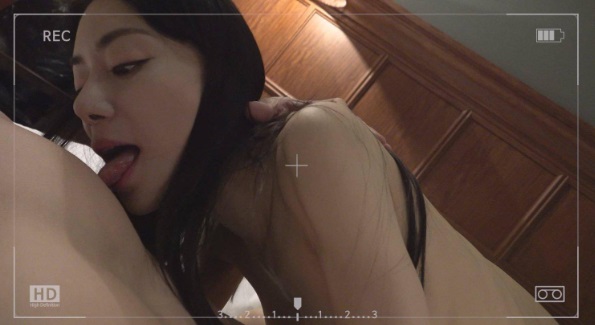
Korean Porn cinema has a way of capturing intense emotional and psychological dimensions in unique ways, especially when it tackles topics like love, betrayal, and moral complexity. Age of Infidelity, directed by Lee Ta-chi, is a 2024 Korean erotic drama that navigates the complicated intersections of desire, vengeance, and betrayal. While the plot may initially sound like a classic story of infidelity, the film manages to transform a potentially typical narrative into something much darker, exploring the destructive effects of jealousy and obsession.
The storyline centers on Seon-hee, a married woman who suspects her husband of cheating. Feeling betrayed by his frequent absences and late-night returns, she hires a detective to investigate her suspicions. Her worst fears are confirmed when the detective uncovers her husband’s affair with a young woman named Joo-ri. However, rather than confronting her husband, Seon-hee’s fury and frustration drive her to a drastic decision: she asks the detective to kill her husband’s mistress. This is where the film veers into more intense territory, with the detective countering her request with a proposition of his own — demanding her body in lieu of money as payment for the job.
One of the film’s strengths lies in its casting, particularly with So Geum as Seon-hee. She portrays the anguish and inner turmoil of a woman trapped between love and betrayal. So Geum’s performance captures the range of Seon-hee’s emotions, from quiet suspicion to anger and eventual desperation. Her portrayal of Seon-hee brings a degree of empathy to her character, even as she navigates morally questionable decisions. Rather than portraying Seon-hee as merely vindictive, the actress adds depth to her character, showing that her vengeful actions are driven by a complicated combination of love, pain, and a need for control.
Min Do-yoon plays the unfaithful husband, a character who could easily be dismissed as stereotypical. However, the nuances in Min Do-yoon’s performance help add complexity to his role, emphasizing his ability to live a double life and compartmentalize his actions. His portrayal reveals layers of hypocrisy and weakness, drawing viewers to question what his motivations are and how much he actually cares for his wife and lover. The film’s writing leaves the husband’s motivations vague, which forces viewers to fill in the gaps. In many ways, this mystery adds to the suspense, making viewers wonder if Seon-hee’s suspicions are merely a projection of her own insecurities or if there’s something inherently flawed in their relationship.
Woo Yeol as the detective brings a sense of gritty intensity to his role, embodying the morally ambiguous figure whose motives remain largely shrouded in mystery. His demand for Seon-hee’s body as payment adds an additional layer of depravity to his character, revealing the darker undertones of exploitation and manipulation. Woo Yeol manages to portray the detective as both alluring and repulsive, making his character a complex antagonist within the story. His interactions with Seon-hee are filled with tension, as viewers sense both the risk of her decision and the danger lurking beneath his demands. This complexity in his character is crucial in driving the story forward, especially when viewers are unsure of how far he’s willing to go to achieve his own ends.
Lastly, Joo-ri, played by White Sugar, brings a fresh and innocent quality to the role of the mistress. Her character’s allure lies in her youth and beauty, qualities that attract Seon-hee’s husband and evoke jealousy in Seon-hee. White Sugar’s portrayal captures the naivety and vulnerability of Joo-ri, who is unwittingly thrust into a deadly game of manipulation. Although her screen time is relatively limited compared to the other characters, she serves as a vital piece in the love triangle, representing the wedge that drives Seon-hee to her breaking point.
Age of Infidelity leans into a range of visual storytelling techniques to heighten the film’s erotic and suspenseful atmosphere. Director Lee Ta-chi uses tight, close-up shots to capture the characters’ emotions, allowing the viewer to witness subtle changes in expression that reveal their inner thoughts. This technique is particularly effective in scenes between Seon-hee and the detective, where unspoken tension simmers beneath the surface. The dim lighting and muted color palette add a sense of claustrophobia, trapping the characters in their own emotional turmoil. These visual choices help build the film’s mood, casting a dark shadow over the plot and emphasizing the idea that each character is trapped in their own web of deceit and desire.
From a thematic standpoint, Age of Infidelity delves into questions about power, control, and the human psyche. It highlights the complexities of intimate relationships, suggesting that love and hatred are two sides of the same coin. Seon-hee’s decision to seek vengeance through the detective reveals her struggle for control over a life that has spun out of her hands. She attempts to reclaim her dignity and assert her power, yet in doing so, she exposes herself to even greater moral corruption. The detective, on the other hand, embodies a darker force, exploiting Seon-hee’s vulnerability for his own benefit. This dynamic showcases how trauma and betrayal can erode moral boundaries, pushing people to act in ways they might never have considered.
The film also tackles the idea of femininity and societal expectations, presenting Seon-hee as a woman torn between her roles as a wife and as an individual. Her decision to take drastic measures challenges traditional expectations of forgiveness or passivity, depicting her instead as a complex figure driven by both passion and a desire for justice. Her choices, while morally ambiguous, speak to her desperation for validation in a society that often places women in secondary roles within their own lives.
While Age of Infidelity succeeds in creating a tense, erotic atmosphere, its brevity at just 70 minutes can also feel like a drawback. The film attempts to explore complex themes, but its limited runtime constrains character development and plot exploration. As a result, some scenes feel rushed, and the psychological depth that could have made the film truly remarkable is occasionally lost. Given the weighty themes it tackles, a slightly longer runtime might have allowed the filmmakers to delve deeper into each character’s motivations and backstory, providing a richer experience for the audience.
In conclusion, Age of Infidelity is a compelling film that offers a dark glimpse into the minds of characters grappling with betrayal, jealousy, and vengeance. It combines strong performances, especially from So Geum and Woo Yeol, with intense visual storytelling to create an experience that is both captivating and unsettling. The film raises questions about morality, power, and the complex nature of human relationships, making it a thought-provoking, if somewhat limited, exploration of these themes. For fans of Korean erotic dramas that push the boundaries of convention, Age of Infidelity offers a brief yet intense journey into the darker aspects of love and obsession.
